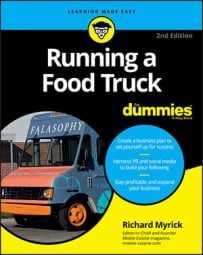Starting off on the right foot
When you call applicants to invite them to a face-to-face interview, make sure you’re prepared with the appropriate materials that will help you make the best choice for your team. At the interview, you should have the applicant’s resumé and/or employment application, a written job description, an interview evaluation form (or a notebook that includes questions you plan to ask and space for you to note the candidate’s answers), and any other materials you may need to reference during your meeting.At the beginning of the interview, ask questions to help the candidate feel at ease, such as where he lives, what activities he enjoys, and what his plans are for the upcoming holidays. Avoid asking yes or no questions because people tend to give only one word answers. Instead, ask questions that will encourage the applicant to talk about himself.
Getting to the heart of matters
To transition into more of the important factors you’re looking for, have the candidate discuss his current place of employment and what type of work he does there. Then have him tell you what three things in a workplace are the most important to him. This type of question helps you determine whether your business fits what he’s looking for.Moving on, start asking questions that help you understand what type of accomplishments the candidate has in his past jobs. Here are a few examples:
- What are the three most important results you’ve achieved at your current job or at your last two places of employment?
- Give me an example of a major customer-related/food-related/staff problem you had to solve. What was the issue and how did you resolve it? Whom did you ask to help? What was the result and outcome? What was its significance? What were your three biggest obstacles?
- What is your current salary? What range are you looking for?
Beware of these red flags from candidates, which can predict negative situations you want to avoid bringing into your business:
- They can’t give reasons for leaving their last job.
- They don’t want their references checked.
- They’ve had many jobs in the last year or more.
Wrapping things up
Just as you ease into the questions at the beginning of the interview, you want to ease out of the tough questions with ones that a candidate should be able to answer without too much trouble. These questions give you an idea about whether the candidate is actually interested in working for you, and if you choose to hire him, how quickly he can start. You can close the interview with the following questions:- Based on what I shared with you, do you feel you can do the job?
- What is your interest, on a scale of 1 to 10, in this position?
- What time frame are you looking to start a new job? How soon can you give notice if I make you an offer?
- Where else are you interviewing? Do you have any offers? How do you feel about them?
Some legal consequences exist for asking certain questions during the interview process. These taboo topics you may not ask about include the following:
- Birthplace
- Date of birth, or age
- Marital status or children
- Race or skin color
- Religious practices
If you’re still considering a candidate for the position by the end of the interview, give him the opportunity to ask you questions about wages, policies, training, and scheduling. Be sure you have your employee handbook nearby in case you need to reference it.
Making decisions after the interview
It’s a good idea to have at least two rounds of interviews for positions in the kitchen. The first interview should be a sit-down, formal interview for screening individuals and for figuring out how they may fit into your business; the second round should take place in the kitchen and include a cooking test, which can test their knife skills as well as their ability to prepare one of the items off your menu.If you’re hiring for a head chef position, you can have the candidate prepare a plate of something he thinks could be used as a menu item. This type of interview structure gives you an idea of an individual’s personality and cooking skills.
After a candidate makes it past your first two rounds of interviews, use the reference list he provided on his application. Calling past employers, supervisors, instructors, or co-workers can provide a candid look into the candidate’s prior employment or activities. These names and numbers are there for a reason, and you’re obliged to research your potential hires as fully as possible.
When determining which types of employees you need to build your team, hire a good balance of people — different maturity or age levels, talents, personalities, and experience levels. However, be sure to hire people who fit your concept, values, and culture. Don’t hire someone who won’t work well with his co-workers. Your staff should feel comfortable and confident working alongside one another, so do as much pre-screening as possible to be sure you build the best team you can.

